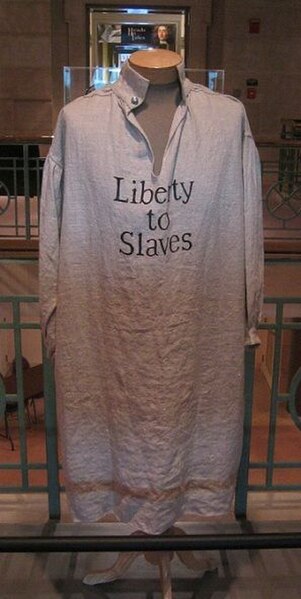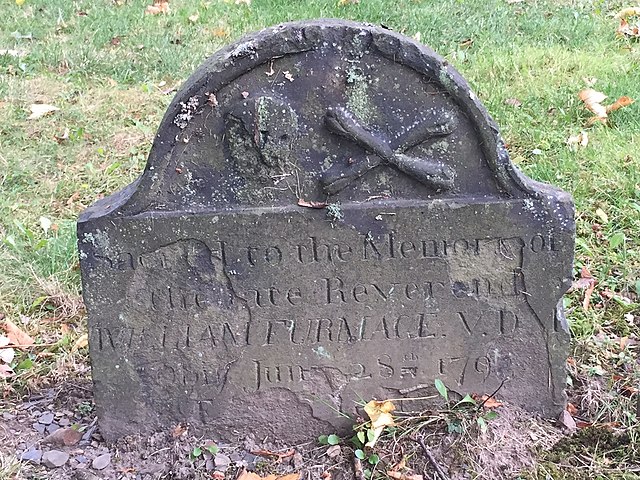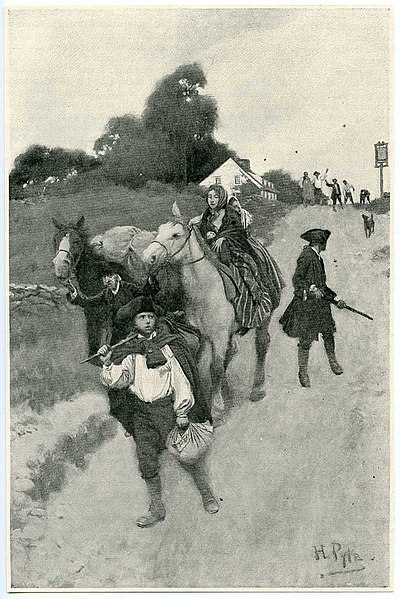Black Loyalists were people of African descent who sided with the Loyalists during the American Revolutionary War. In particular, the term refers to men who escaped enslavement by Patriot masters and served on the Loyalist side because of the Crown's guarantee of freedom.
Smock similar to those worn by Black Loyalist soldiers in Lord Dunmore's Ethiopian Regiment
Reverend William Furmage, Old Burying Ground (Halifax, Nova Scotia), Huntingdonian Missionary to the Black Loyalists; established school for Black students in Halifax (1786)
Lawrence Hartshorne, d. 1822, a Quaker who was the chief assistant of John Clarkson in helping the Black Nova Scotian Settlers emigrate to Sierra Leone (1792), Old Burying Ground (Halifax, Nova Scotia)
Loyalist (American Revolution)
Loyalists were colonists in the Thirteen Colonies who remained loyal to the British Crown during the American Revolutionary War, often referred to as Tories, Royalists or King's Men at the time. They were opposed by the Patriots, who supported the revolution, and called them "persons inimical to the liberties of America."
Britannia offers solace and a promise of compensation for her exiled American-born British Loyalists. (Reception of the American Loyalists by Great Britain in the Year 1783, engraving by Henry Moses after a painting by Benjamin West.)
A jury finding from Kentucky County, Virginia in July 1780, confiscating lands of two men adjudged to be British subject. Daniel Boone was listed as a member of the jury.
Johnson Hall, seat of Sir John Johnson in the Mohawk Valley
Tory Refugees on their way to Canada by Howard Pyle







